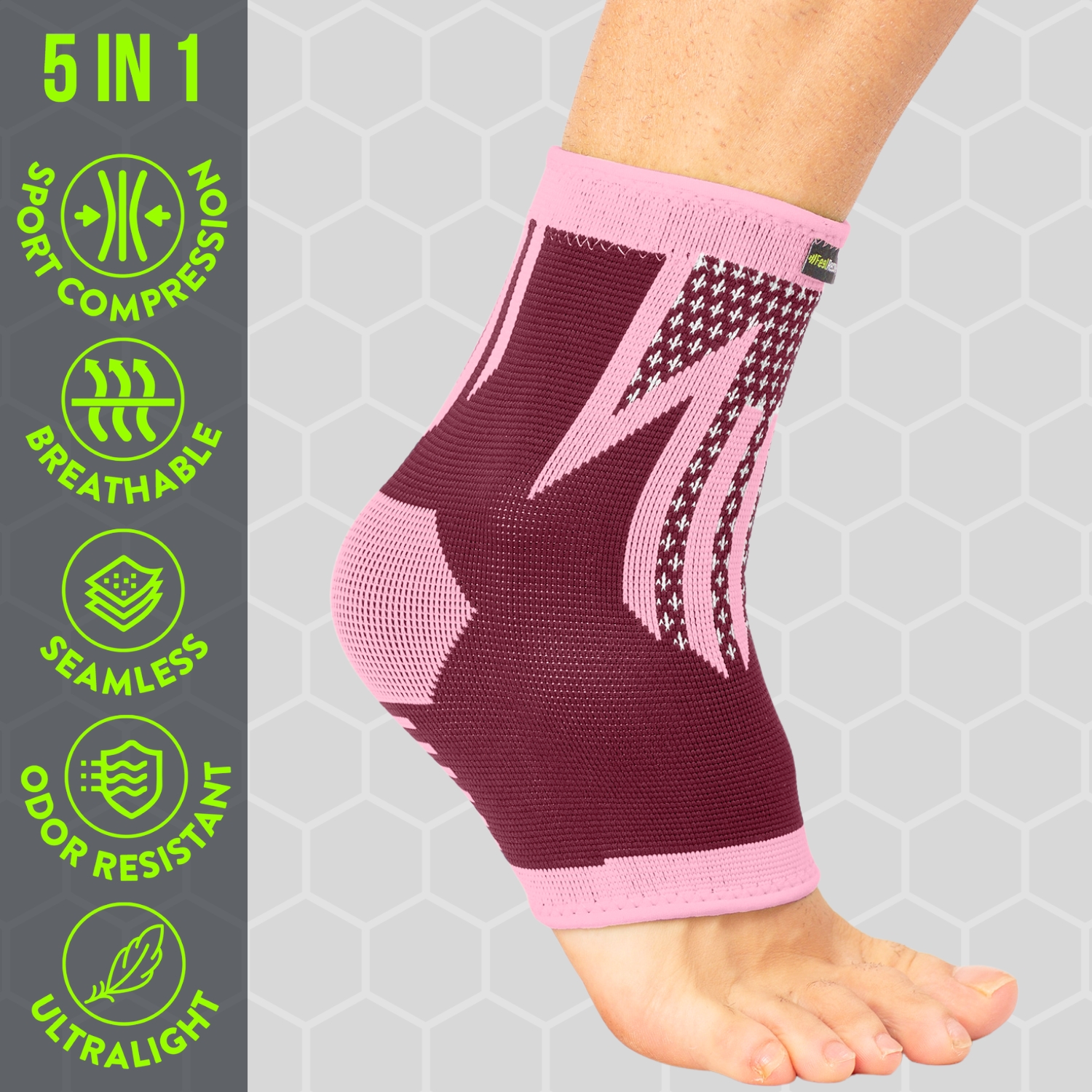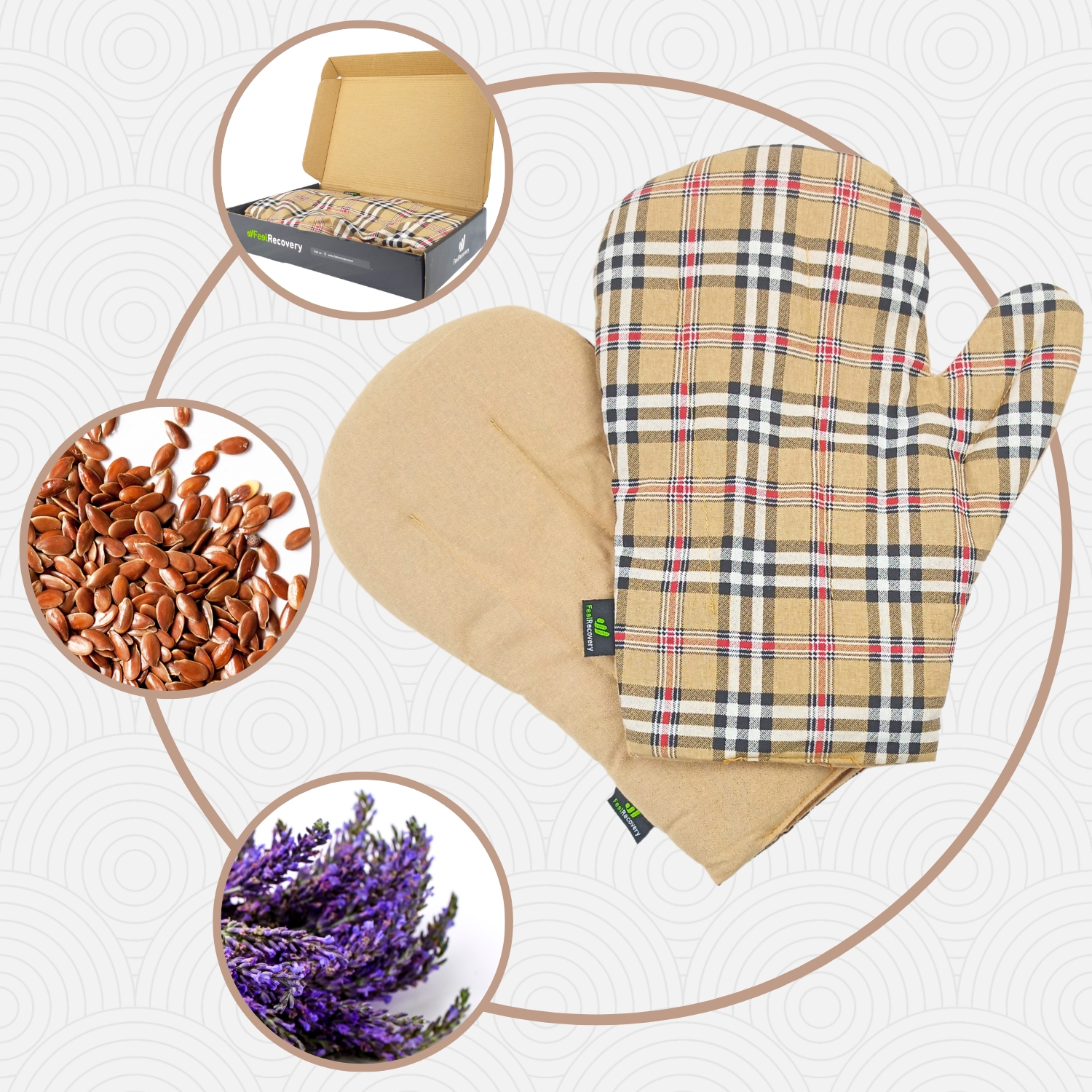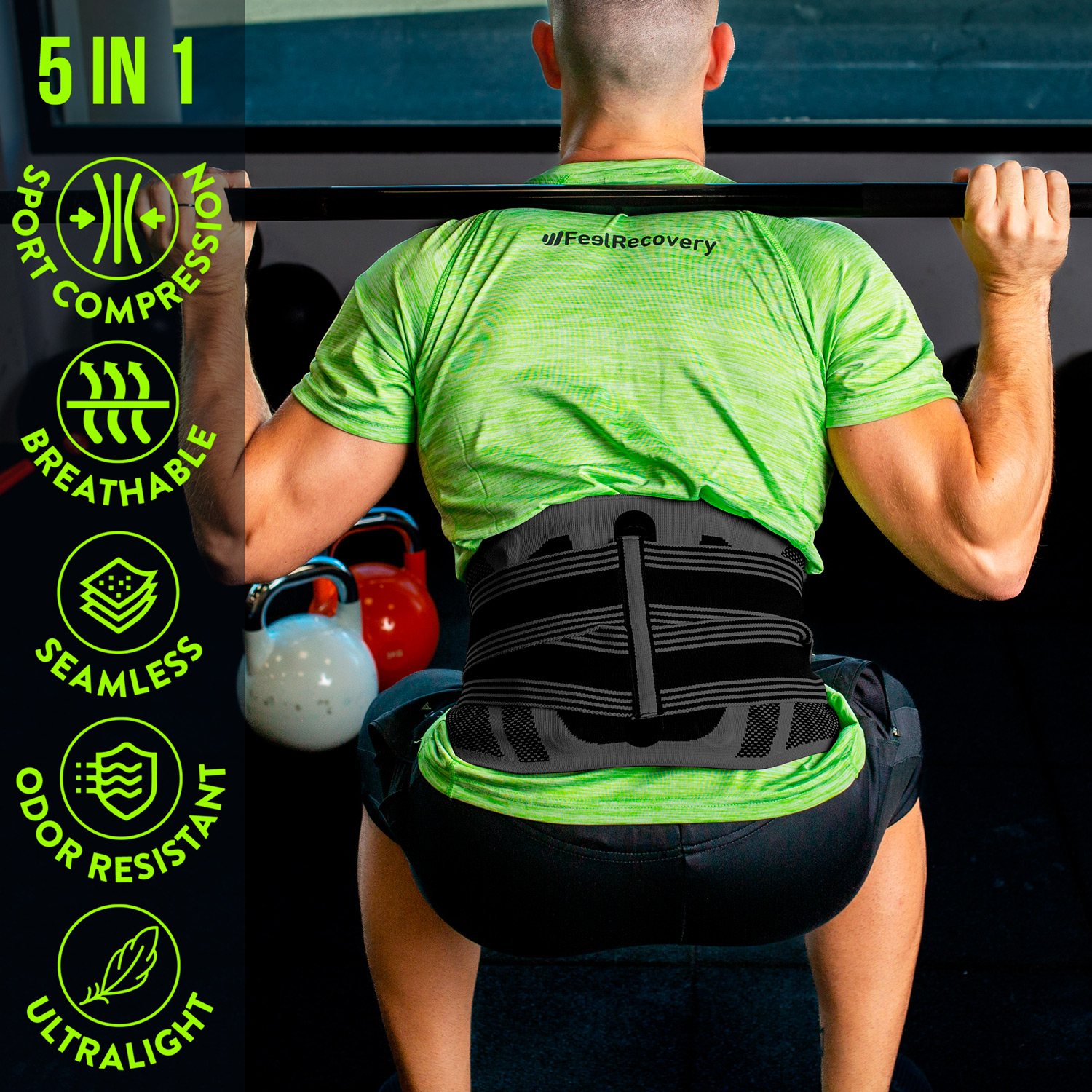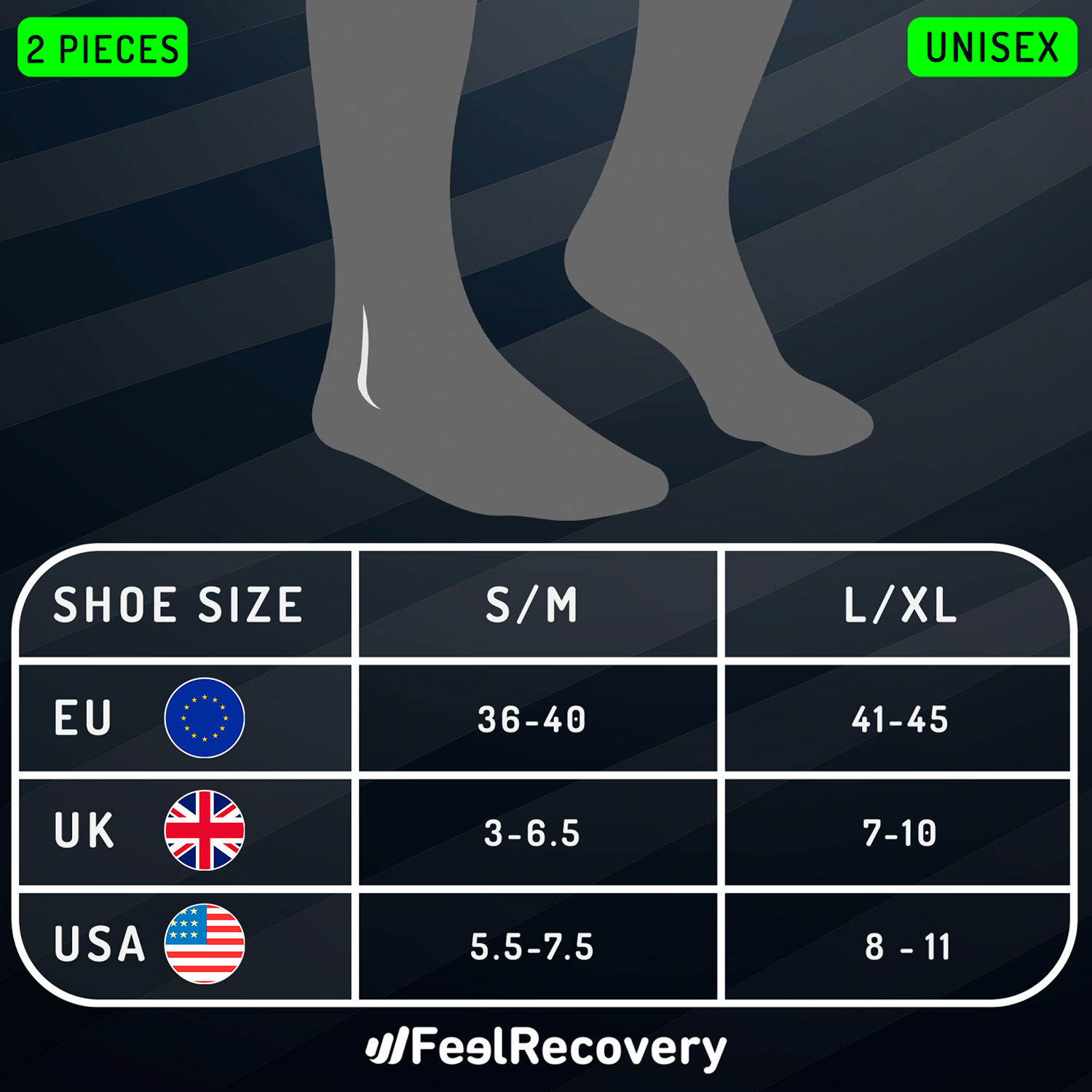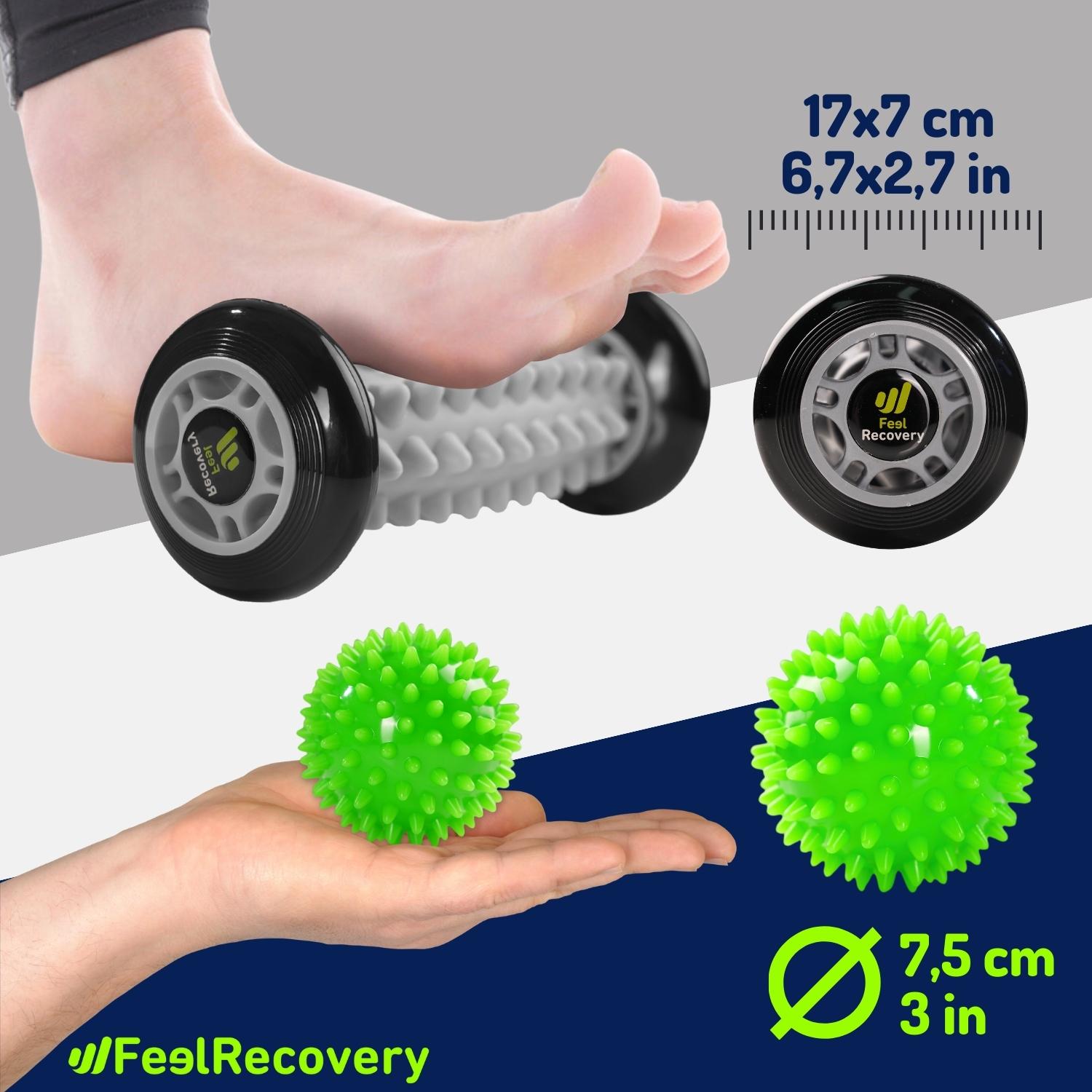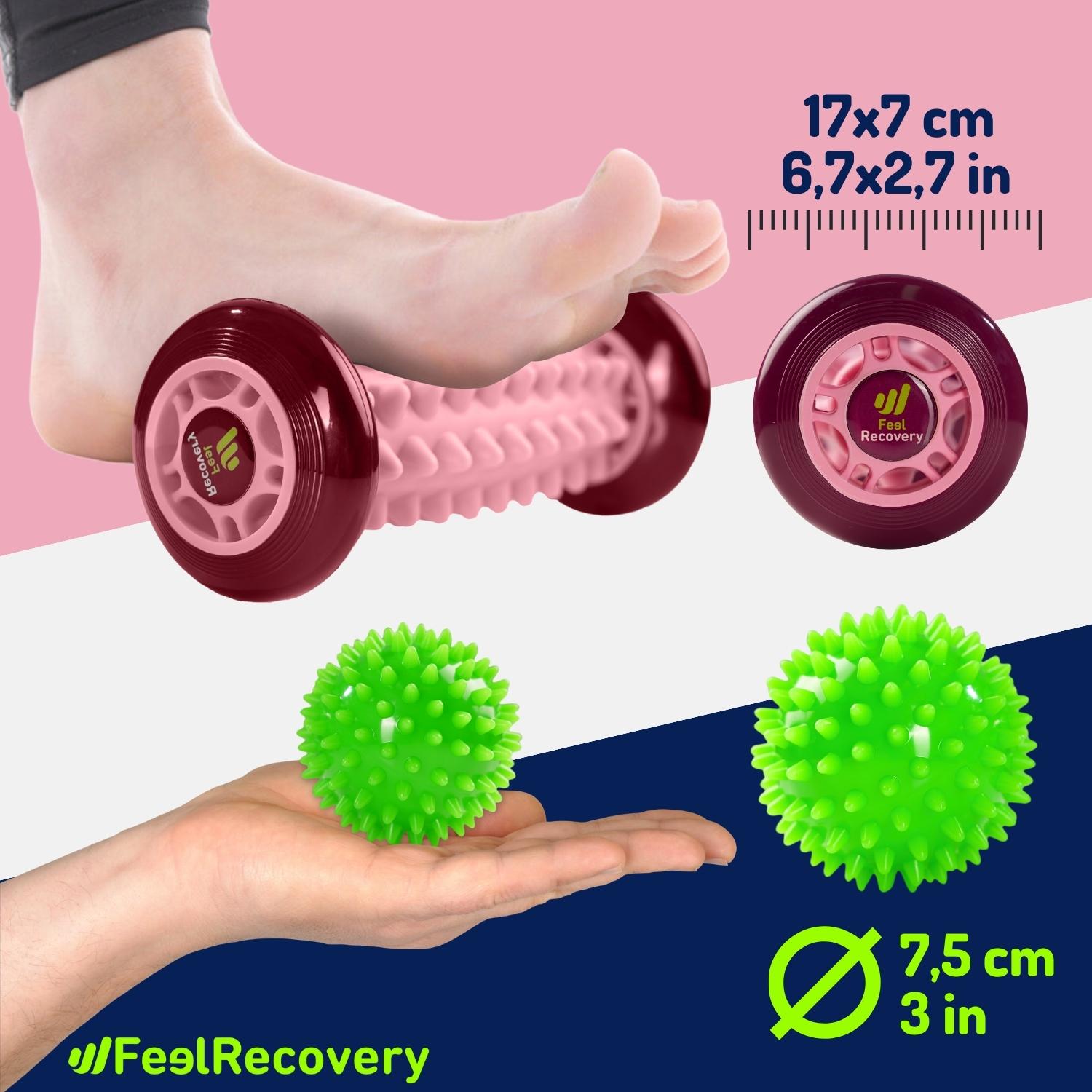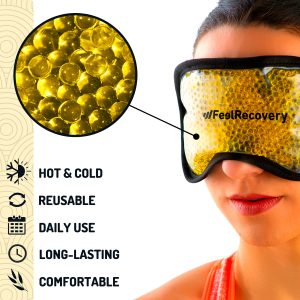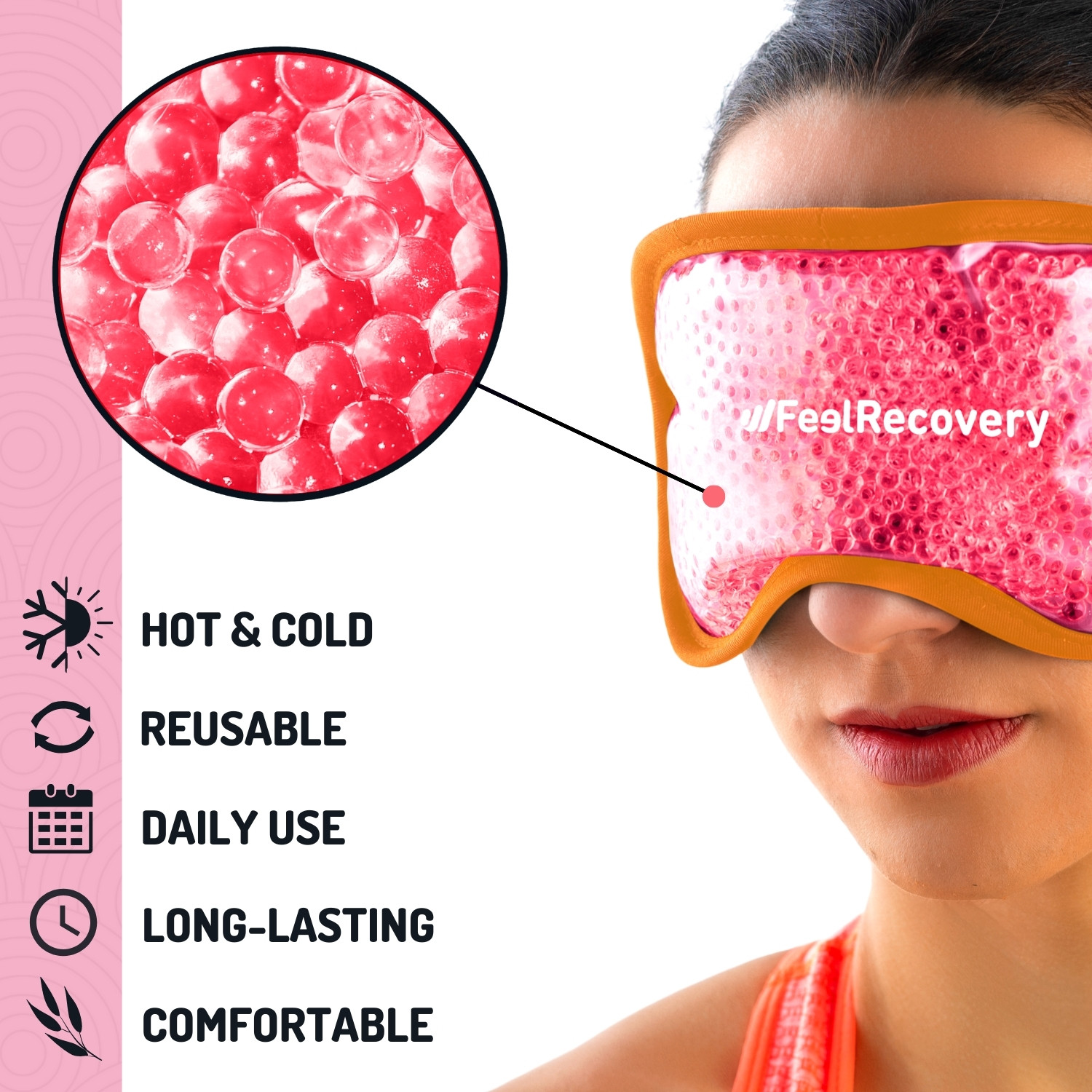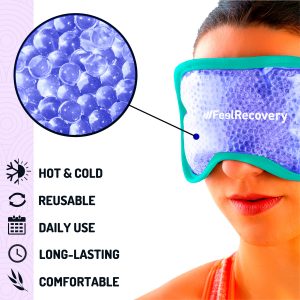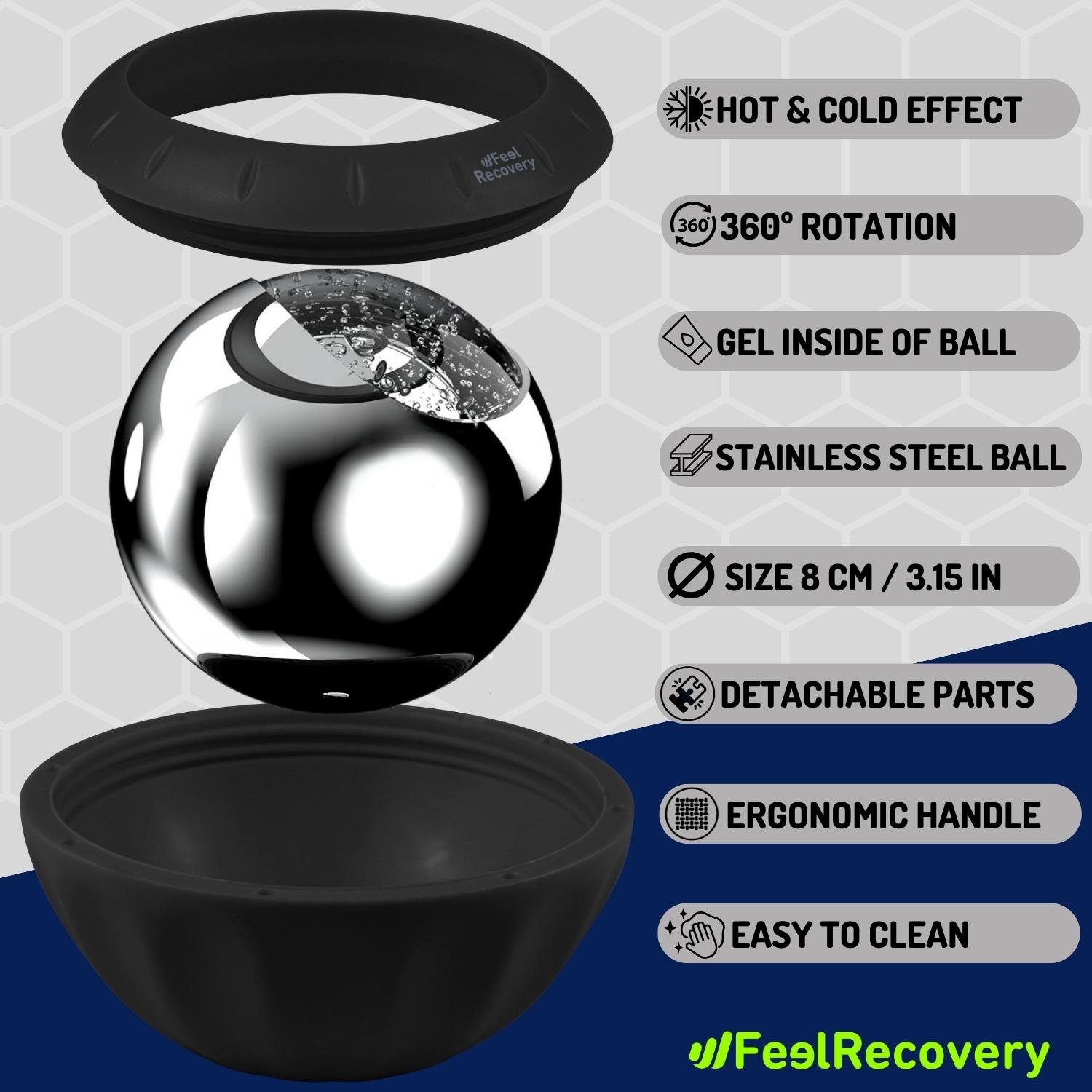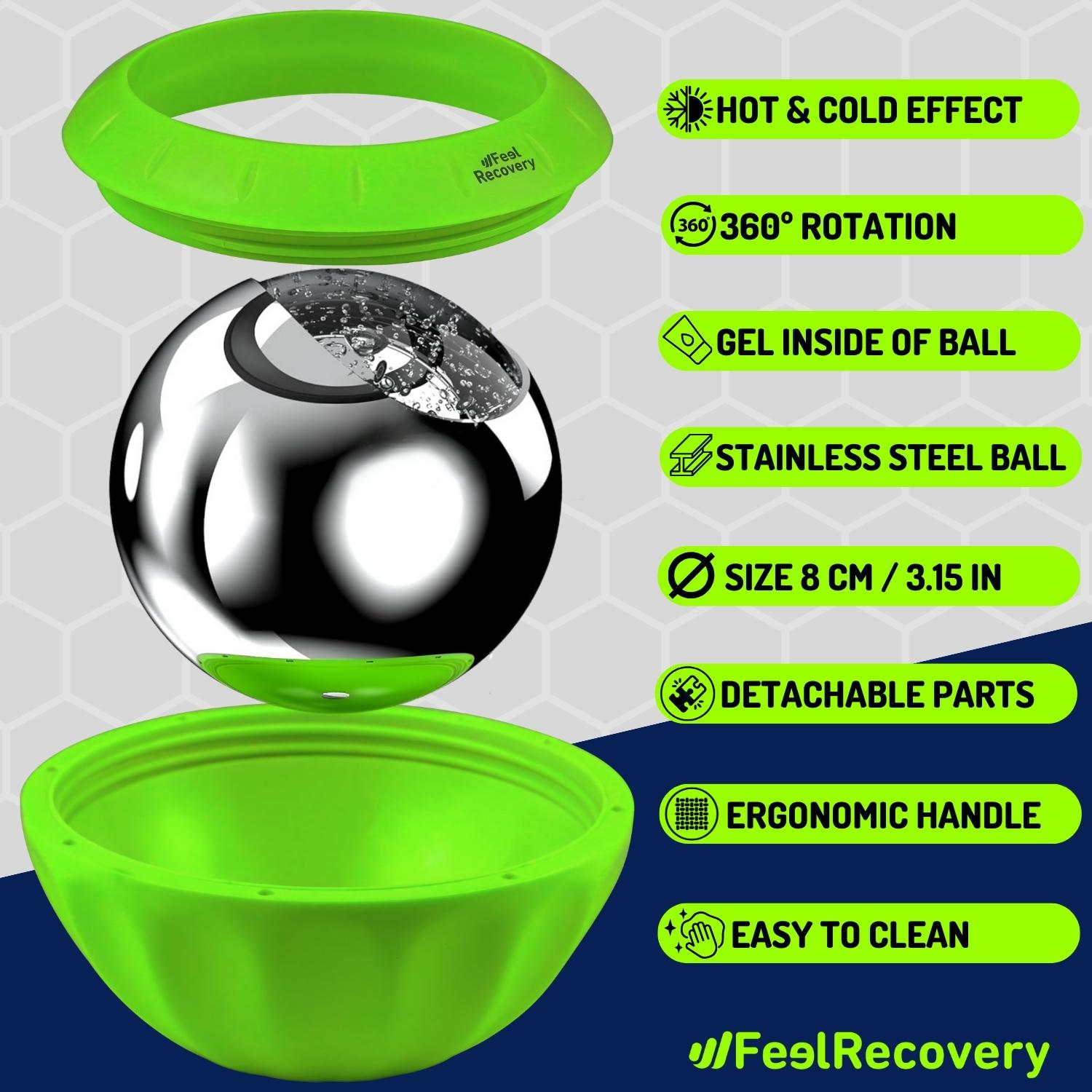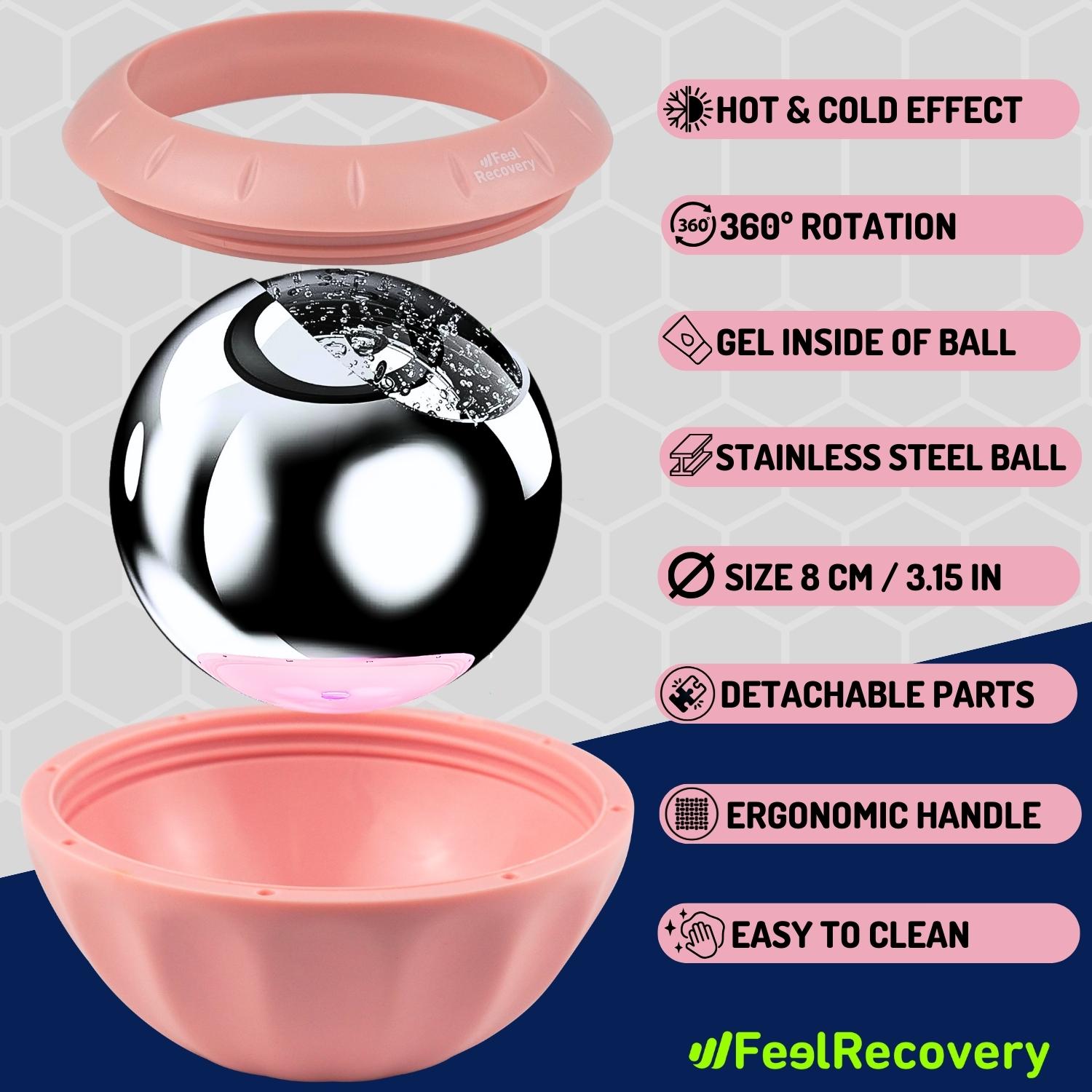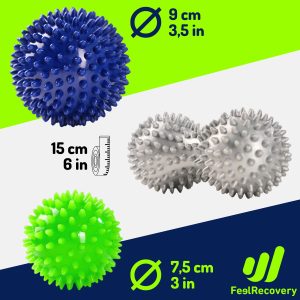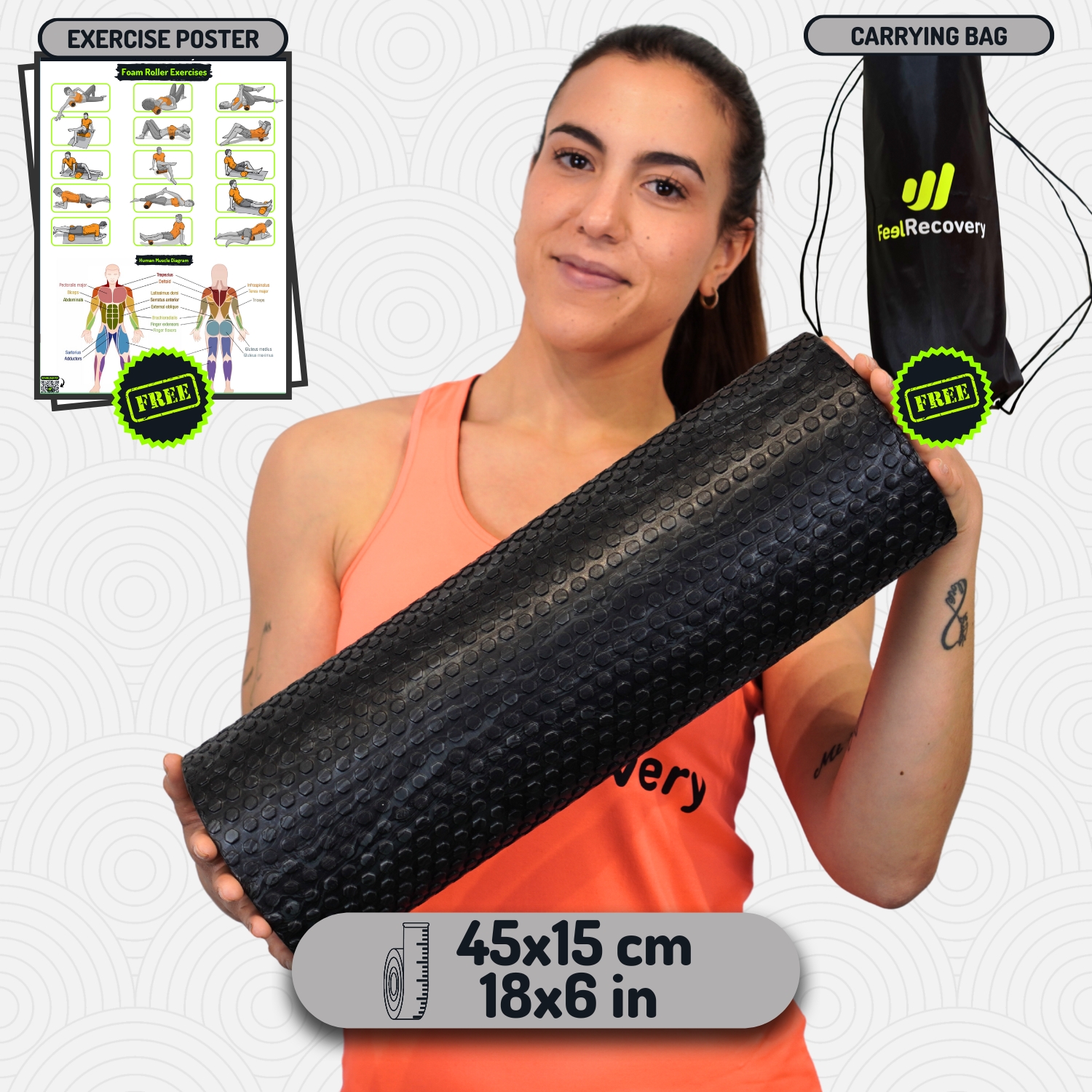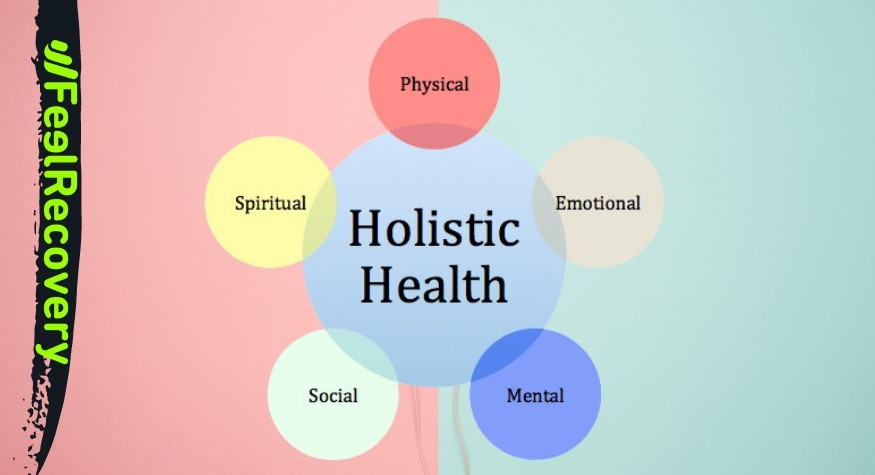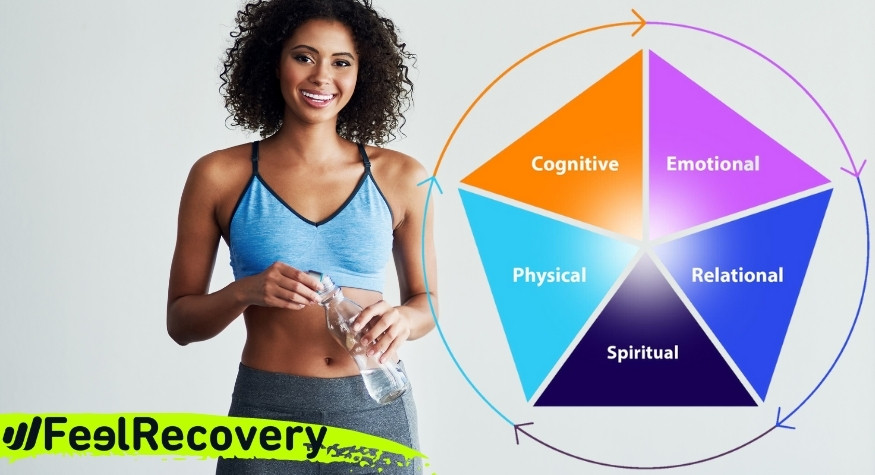Understanding the importance of health and wellness is crucial for maintaining a balanced and fulfilling life. Physical health and wellness therapy focuses on promoting overall well-being by taking a holistic approach to health, addressing both the physical and mental aspects of wellness. This approach emphasizes the importance of regular exercise, proper nutrition, and stress management techniques to prevent chronic diseases, improve mood and cognitive function, and enhance physical performance.
By prioritizing health and wellness, individuals can improve their quality of life, increase productivity, and reduce healthcare costs. A healthy lifestyle can also provide a sense of purpose and fulfillment, contributing to a greater sense of happiness and overall life satisfaction.
Best Health and Wellness products
bestseller
-
2 Ankle Compression Sleeve (Black/Gray)
£20,95 -
2 Ankle Compression Sleeve (Green/Navy)
£20,95 -
2 Ankle Compression Sleeve (Pink/Bordeaux)
£20,95 -
2 Knee Compression Sleeve (Black/Gray)
£20,95 -
2 Knee Compression Sleeve (Green/Navy)
£20,95 -
2 Knee Compression Sleeve (Pink/Bordeaux)
£20,95 -
2 Mittens: Microwave Arthritis Gloves (Hearts)
£24,95 -
2 Mittens: Microwave Arthritis Gloves (Oxford)
£24,95 -
Back Support Belt (Black)
£39,95 -
Back Support Belt (Green)
£39,95 -
Back Support Belt (Pink)
£39,95 -
Microwavable Heated Slippers (Hearts)
£24,95 -
Microwavable Heated Slippers (Oxford)
£24,95 -
Microwavable Heated Slippers (Sport)
£24,95 -
Microwave Wheat Bag for Neck & Shoulder Pain Relief (Hearts)
£24,95 -
Microwave Wheat Bag for Neck & Shoulder Pain Relief (Oxford)
£24,95 -
Microwave Wheat Bag for Neck & Shoulder Pain Relief (Sport)
£24,95 -
Microwave Wheat Bag for Neck Pain Relief (Hearts)
£20,95 -
Microwave Wheat Bag for Neck Pain Relief (Oxford)
£20,95 -
Microwave Wheat Bag for Neck Pain Relief (Sport)
£20,95 -
Shoulder Support Brace (Green)
£24,95 -
Shoulder Support Brace (Pink)
£24,95
-
Foot Massage Roller for Plantar Fasciitis (Black)
£20,95 -
Foot Massage Roller for Plantar Fasciitis (Green)
£20,95 -
Foot Massage Roller for Plantar Fasciitis (Pink)
£20,95 -
Gel Eye Mask for Puffy Eyes (Gold/Black)
£9,95 -
Gel Eye Mask for Puffy Eyes (Orange/Pink)
£9,95 -
Gel Eye Mask for Puffy Eyes (Purple/Turquoise)
£9,95 -
Ice Massage Roller Ball (Black)
£34,95 -
Ice Massage Roller Ball (Green)
£34,95 -
Ice Massage Roller Ball (Pink)
£34,95 -
Ice Pack for Foot - Cold Therapy Socks (Black)
£20,95 -
Ice Pack for Foot - Cold Therapy Socks (Green)
£20,95 -
Ice Pack for Foot - Cold Therapy Socks (Pink)
£20,95 -
Sacroiliac Support Belt (Black)
£24,95 -
Sacroiliac Support Belt (Green)
£24,95 -
Sacroiliac Support Belt (Pink)
£24,95 -
Shoulder Support Brace (Black)
£24,95 -
Soft Density Foam Roller for Recovery (Black)
£34,95 -
Soft Density Foam Roller for Recovery (Green)
£34,95 -
Soft Density Foam Roller for Recovery (Pink)
£34,95
Key components of Health and Wellness
These 5 key components encompass all areas of an individual's life, and addressing each of these areas can lead to optimal health and wellness.
Physical health
Here are some key points of physical health and ways to improve them:
- Exercise regularly: Engage in at least 30 minutes of moderate-intensity physical activity most days of the week to improve cardiovascular health, strengthen muscles, and improve flexibility.
- Maintain a healthy weight: Being overweight or obese can increase the risk of several chronic health conditions, including heart disease, diabetes, and some cancers. Eat a balanced diet and engage in regular physical activity to achieve and maintain a healthy weight.
- Get enough sleep: Aim for 7-9 hours of sleep each night to promote physical and mental health.
- Manage stress: Chronic stress can contribute to a variety of health problems, including high blood pressure, heart disease, and obesity. Practice stress-management techniques such as deep breathing, meditation, or yoga.
- Limit alcohol and drug use: Excessive alcohol consumption and drug use can have a negative impact on physical health, including liver disease, cancer, and other health issues. Limit or avoid these substances.
- Quit smoking: Smoking is a major risk factor for many chronic diseases, including lung cancer, heart disease, and stroke. Quitting smoking is one of the best things you can do for your physical health.
- Practice safe sex: Use condoms or other forms of protection to reduce the risk of sexually transmitted infections.
- Practice good hygiene: Wash your hands regularly, cover your mouth and nose when coughing or sneezing, and avoid close contact with those who are sick.
- See a healthcare provider regularly: Regular check-ups can help detect and prevent health problems before they become more serious.
Mental health
Here are the key points of mental health and ways to improve them:
- Positive self-talk: Reframe negative thoughts and replace them with positive ones. Focus on your strengths and accomplishments.
- Practice relaxation techniques: This can include meditation, deep breathing, and yoga.
- Exercise: Physical activity releases endorphins that can improve mood and reduce stress.
- Get enough sleep: Aim for 7-9 hours of sleep per night to help with mood regulation and cognitive function.
- Connect with others: Social support can help reduce feelings of isolation and improve mood.
- Seek professional help: Don't hesitate to seek help from a mental health professional if you're struggling with your mental health.
- Practice gratitude: Focus on what you're grateful for in your life to promote positivity and perspective.
- Limit screen time: Too much screen time can contribute to anxiety and depression, so it's important to set boundaries.
- Eat a balanced diet: Eating a diet rich in fruits, vegetables, whole grains, and lean protein can support overall brain function and mood.
- Engage in hobbies and interests: Doing things you enjoy can help improve mood and reduce stress.
Emotional health
Here are some key points of emotional health and ways to improve them:
- Self-awareness: Being aware of your emotions and how they affect you is the first step towards emotional health. Regularly check in with yourself and ask how you're feeling.
- Stress management: Learning effective stress management techniques can help you cope with difficult emotions and situations. Try practicing mindfulness or deep breathing exercises.
- Positive self-talk: Our thoughts have a big impact on our emotions. Practicing positive self-talk and challenging negative thoughts can improve emotional wellbeing.
- Healthy relationships: Building and maintaining healthy relationships with friends, family, and romantic partners can help improve emotional health. These relationships provide social support, which is important for emotional wellbeing.
- Work-life balance: Finding a balance between work and leisure activities is important for emotional health. Take breaks and make time for hobbies or activities you enjoy.
- Boundaries: Setting boundaries with others can help you avoid emotional burnout and maintain healthy relationships.
- Therapy or counseling: Seeking professional help from a therapist or counselor can provide additional support and guidance for improving emotional health.
Spiritual health
Here are the key points of Spiritual health and some ways to improve them:
- Self-reflection and awareness: Spend some time alone in quiet reflection, journaling, or meditation to connect with your inner self and values.
- Sense of purpose: Identify your personal values, beliefs, and passions to help you find meaning and direction in life.
- Connection with others: Cultivate meaningful relationships with others who share similar beliefs, values, and interests.
- Forgiveness and compassion: Practice forgiveness and compassion towards yourself and others to promote inner peace and harmony.
- Mindfulness and gratitude: Develop a daily mindfulness or gratitude practice to stay present, positive, and appreciative of life's blessings.
- Nature and the environment: Spend time in nature or engage in activities that promote environmental sustainability to connect with something greater than yourself.
- Creativity and self-expression: Explore your creative side through art, music, or other forms of self-expression to connect with your inner self and express your unique perspective.
- Service and altruism: Find ways to give back to your community or engage in acts of service to others, which can promote a sense of purpose and fulfillment.
- Reflection and contemplation: Engage in spiritual practices like prayer, meditation, or yoga to deepen your connection with yourself, others, and the universe.
- Personal growth and development: Seek out opportunities for personal growth and development, whether it's through education, therapy, or self-help books, to continuously improve your spiritual health.
Social health
Here are the key points of social health and ways to improve them:
- Communication: Good communication skills are essential for social health. Practice active listening and expressing yourself clearly and respectfully.
- Building relationships: Strong relationships can improve your social health. Spend time with friends and family, join clubs or groups, and participate in social events.
- Support system: Having a support system is crucial for social health. Reach out to friends, family, or a therapist for emotional support when needed.
- Boundaries: Establishing healthy boundaries is important for maintaining positive relationships. Learn to say no and set limits when necessary.
- Empathy: Showing empathy and understanding towards others is key to social health. Try to put yourself in someone else's shoes and show kindness and compassion.
- Conflict resolution: Conflict is a natural part of social interactions. Learn to resolve conflicts in a healthy and productive way.
- Community involvement: Getting involved in your community can improve your social health. Volunteer, participate in local events, or join community organizations.
- Positive social media habits: Social media can affect your social health. Use social media in moderation and be mindful of the content you consume and share.
- Respect diversity: Respecting diversity and different opinions is crucial for social health. Learn about different cultures and beliefs, and practice tolerance and acceptance.
- Work-life balance: Balancing work and social life is important for social health. Make time for hobbies, interests, and social activities outside of work.
Tips and ways to improve your Health and Wellness
Here are 21 ways to improve your health and wellness:
- Exercise regularly: Regular exercise is important for maintaining physical fitness, reducing the risk of chronic diseases, and improving mental health.
- Eat a balanced diet: Eating a diet rich in fruits, vegetables, whole grains, lean proteins, and healthy fats can help maintain a healthy weight, reduce the risk of chronic diseases, and improve overall health.
- Stay hydrated: Drinking enough water is important for maintaining healthy bodily functions, including regulating body temperature and supporting digestion.
- Get enough sleep: Sleep is crucial for physical and mental health, as it allows the body to rest, repair, and regenerate.
- Manage stress: Chronic stress can have negative impacts on both physical and mental health. Finding healthy ways to manage stress, such as through exercise, meditation, or therapy, can improve overall well-being.
- Practice good hygiene: Washing your hands regularly, covering your mouth when coughing or sneezing, and avoiding close contact with sick people can help prevent the spread of illness.
- Avoid smoking and excessive alcohol consumption: Smoking and excessive alcohol consumption can lead to a variety of health problems, including cancer, heart disease, and liver disease.
- Stay socially connected: Maintaining social connections and having strong relationships with friends and family can improve mental health and well-being.
- Stay mentally stimulated: Keeping your mind active by learning new things, engaging in hobbies, or challenging yourself intellectually can improve cognitive function and reduce the risk of cognitive decline.
- Practice safe sex: Practicing safe sex, such as using condoms, can help prevent the spread of sexually transmitted infections (STIs).
- Practice safe sun exposure: Protecting your skin from the sun's harmful rays can reduce the risk of skin cancer and premature aging.
- Get regular health screenings: Regular health screenings, such as blood pressure checks and cancer screenings, can help detect potential health problems early and improve treatment outcomes.
- Maintain a healthy weight: Maintaining a healthy weight can reduce the risk of chronic diseases, improve energy levels, and boost self-esteem.
- Limit processed foods and added sugars: Eating too many processed foods and foods high in added sugars can lead to weight gain, diabetes, and other health problems.
- Practice mindfulness: Practicing mindfulness, such as through meditation or yoga, can improve mental health and reduce stress.
- Find time for relaxation: Finding time for relaxation and self-care, such as through taking a bath or reading a book, can improve mental and physical health.
- Volunteer or give back to the community: Helping others can improve overall well-being and provide a sense of purpose and fulfillment.
- Practice gratitude: Practicing gratitude, such as through keeping a gratitude journal or expressing gratitude to others, can improve mental health and overall well-being.
- Practice self-compassion: Treating yourself with kindness and compassion, as you would a friend, can improve self-esteem and reduce stress.
- Set realistic goals: Setting realistic goals and working towards them can provide a sense of accomplishment and boost self-esteem.
- Sauna: Saunas can be an effective method for sports recovery. The high temperature in the sauna causes the blood vessels to dilate, increasing blood flow and promoting relaxation. This can help to reduce muscle soreness and stiffness, while also providing a cardiovascular benefit.
F.A.Q: Frequently asked questions
References
- Edlin, G., & Golanty, E. (2015). Health and wellness. Jones & Bartlett Publishers. https://books.google.es/books?hl=en&lr=&id=jCVACgAAQBAJ
- McClafferty, H., Brown, O. W., Section on Integrative Medicine, Committee on Practice and Ambulatory Medicine, Vohra, S., Bailey, M. L., ... & Lessin, H. R. (2014). Physician health and wellness. Pediatrics, 134(4), 830-835. https://publications.aap.org/pediatrics/article/134/4/830/32943/Physician-Health-and-Wellness
- Greenberg, J. S. (1985). Health and wellness: A conceptual differentiation. Journal of school health, 55(10), 403-406. https://onlinelibrary.wiley.com/doi/abs/10.1111/j.1746-1561.1985.tb01164.x
- Hawks, S. (2004). Spiritual wellness, holistic health, and the practice of health education. American Journal of Health Education, 35(1), 11-18. https://www.tandfonline.com/doi/abs/10.1080/19325037.2004.10603599
- Els, D. A., & De la Rey, R. P. (2006). Developing a holistic wellness model. SA Journal of Human Resource Management, 4(2), 46-56. https://journals.co.za/doi/abs/10.10520/EJC95833
- Witmer, J. M., & Sweeney, T. J. (1992). A holistic model for wellness and prevention over the life span. Journal of Counseling & Development, 71(2), 140-148. https://onlinelibrary.wiley.com/doi/abs/10.1002/j.1556-6676.1992.tb02189.x
- Prince, M., Patel, V., Saxena, S., Maj, M., Maselko, J., Phillips, M. R., & Rahman, A. (2007). No health without mental health. The lancet, 370(9590), 859-877. https://www.sciencedirect.com/science/article/abs/pii/S0140673607612380
- Kawachi, I., & Berkman, L. F. (2001). Social ties and mental health. Journal of Urban health, 78, 458-467. https://link.springer.com/article/10.1093/jurban/78.3.458
- Hawks, S. R., Hull, M. L., Thalman, R. L., & Richins, P. M. (1995). Review of spiritual health: definition, role, and intervention strategies in health promotion. American journal of Health promotion, 9(5), 371-378. https://journals.sagepub.com/doi/abs/10.4278/0890-1171-9.5.371
- Weare, K. (2000). Promoting mental, emotional, and social health: A whole school approach. Psychology Press. https://books.google.es/books?hl=en&lr=&id=2O9r-tunYtgC





